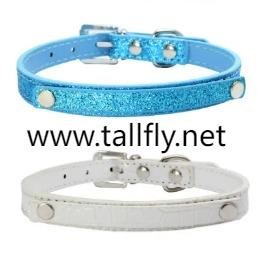Ensuring that every pet accessory meets strict guidelines is more than a legal requirement—it’s a moral imperative. A dedicated Pet Collar Factory understands the critical balance between regulatory compliance and animal welfare standards. By adhering to rigorous quality checks and humane production practices, such manufacturers help pet owners feel confident that their beloved companions are safe, comfortable, and stylish.
As public awareness around animal rights grows, consumers demand transparency in how products are made. Ethical sourcing of materials, non-toxic dyes, and cruelty-free manufacturing are no longer optional features but expected hallmarks of responsible brands. Wholesalers and retailers seek partners who can demonstrate compliance with emerging guidelines, from humane handling protocols to eco-friendly packaging. This focus reflects a broader shift toward conscious consumption, where shoppers want to know that their purchases align with compassionate values.
In reaction to headlines about factory conditions and product recalls, companies that partner with reputable production facilities gain a competitive edge. Pet Collars that arrive on store shelves or through online carts carry the reputation of the factory behind them. When that factory maintains clear documentation of its processes—showing how it tests buckle strength without harming animals, inspects stitching for durability, and vets every raw material—it reassures buyers that no corners were cut.
Today’s social media channels amplify any misstep, but they also celebrate success stories. Brands that showcase behind-the-scenes glimpses of humane workshops, worker training on safe handling for live-testing simulations, and third-party certifications build trust in real time. A transparent Pet Collar Factory invites consumer feedback and shares user-generated content of happy pets wearing compliant collars, turning routine products into symbols of community and care.
Another trend reshaping the industry is the move toward circular economics. Responsible factories are designing collars with replaceable components and recycled fabrics that reduce landfill waste. Some manufacturers even offer take-back programs, giving old collars a new lease on life as textile reinforcements or pet bedding. This level of innovation appeals to eco-minded buyers and positions compliant factories at the forefront of sustainable pet accessory production.
Meanwhile, animal welfare organizations continue to refine best practices. Whether recommending specific leash-attachment designs that minimize strain on a pet’s neck or advising on allergen-free materials, these groups influence manufacturing standards internationally. Factories that engage proactively with these experts—hosting consultation sessions and participating in advisory panels—stay ahead of evolving guidelines and demonstrate genuine commitment to pet wellbeing.
For retailers and wholesalers, aligning with a Pet Collar Factory that embodies both compliance and welfare means fewer returns, stronger brand loyalty, and positive word-of-mouth. When purchasers know that a collar has undergone non-invasive stress testing, ergonomic fitting trials, and material safety assessments, they associate the product with reliability and care. This trust transfers directly to sales performance, as cautious buyers feel reassured by documented ethical practices.
In a market driven by conscious choices, quality and compassion go hand in hand. Pet owners no longer view collars as mere accessories; they see them as extensions of their pets’ health and happiness. A factory that integrates humane treatment, recycled materials, and ongoing compliance checks into every stage of production meets the growing expectations of today’s audience. Discover a range of thoughtfully crafted collars from a factory committed to both regulatory compliance and animal welfare. For more information on compliant, cruelty-free pet accessories, visit www.tallfly.net .

